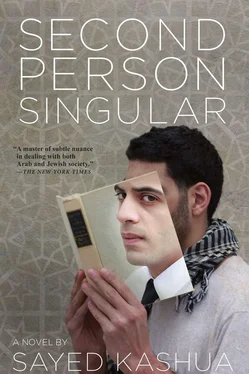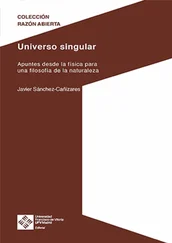He heard her cooing to the baby as she dressed him. He could have popped into the bedroom and she could have stopped by the kitchen. Instead he made his way back downstairs with a cup of coffee. He saw that his daughter was getting dressed in her room and then continued on to the study, shutting the door behind him. This was the only smoking room, in accordance with his house rule. This applied to everyone. If any of their guests wanted to smoke, they were welcome to step out onto the patio or to go downstairs. The lawyer’s wife did not smoke.
SCHOOL
After checking that his daughter was properly buckled into the backseat of his black Mercedes-Benz, the lawyer looked over at his wife and saw her strapping the baby into her blue Volkswagen Golf. Ordinarily, his wife did the dropping off — their daughter at school and the baby at the nanny’s house, a two-minute drive away — but on Thursdays, the last day of the work week for most Israelis, she worried about being late to her staff meetings, which started at eight o’clock sharp. The lawyer was rarely in a rush to get to the office on Thursdays so on this day alone they divided the labor.
The lawyer’s wife clicked open the garage door. She came up to the lawyer’s car and waved to her daughter. “Bye,” she said to her husband, got into her car, and was the first to leave. She turned around and looked back at her husband and waved once again, smiling with gratitude. The lawyer nodded his head and sat down in his car. He felt himself a supportive husband who encouraged his wife’s endeavors. True, other than dropping their daughter off on Thursdays he did not do much around the house or on the child-care front, but even small gestures, like taking their daughter to school or on occasion coming home early from work so that she could attend a conference or some work-related social function, were seen, by both of them, as major career sacrifices. They were aware that there was no comparing their salaries, the lawyer’s and the social worker’s, and though the lawyer never mentioned this to his wife, his friend, who was also his accountant, had told him that if his wife were to quit her job and stay at home, their income would actually rise. As a sole income earner, their tax breaks would amount to more than his wife’s annual salary.
Mulling these things over as he drove his daughter to school, the lawyer realized that he did not know exactly what his wife did at work. That is to say, he knew she had a bachelor’s degree in social work and that when they first met she had been working at the welfare office in Wadi Joz, in east Jerusalem, and that she had been enrolled in a master’s program of some sort. He also knew that she had, over the years, attained an additional master’s degree, in something therapy-related. He felt he had always encouraged her to study, always supported her, but he could not say with any degree of certainty what she did at her current welfare job in the south of the city, where she worked part-time, nor did he know whom she treated at the mental health clinic, where she held an additional part-time position. All of a sudden, before flipping on the radio to hear the seven-thirty news flash, the lawyer wanted to know what, for instance, those Thursday morning staff meetings looked like, the ones she was always nervous about being late for.
He drove slowly through the neighborhood’s narrow streets, sunglasses shielding his eyes. Sometimes there was traffic at the main intersection, where hundreds of day laborers waited to be picked up. The young, strong-looking ones were selected early in the day, and by seven thirty in the morning all that remained were the older, weaker men. Contractors who woke up late would have to make do with them. At close to eight in the morning, when the lawyer generally crossed through the intersection, there was only a smattering of lonely workers. The sight always stung. What did the locals think of him? What did they make of Arabs like him, citizens of the state? With their luxury cars and their ostentatious lifestyles, the ones like him, who came here for college and stayed for financial reasons, immigrants in their own land. The Israeli Arabs with independent careers are the ones who avoid beating a track back to the villages of the Galilee and the Triangle. They are frequently lawyers, like him, or accountants or doctors. Some are academics. They are the only ones who can afford to stay and live in a city where the cost of living, even in the Arab neighborhoods, is many times higher than in any village in the Galilee or the Triangle.
Lawyers, accountants, tax advisors, and doctors—brokers between the noncitizen Arabs and the Israeli authorities, a few thousand people, living within Jerusalem but divorced from the locals among whom they reside. They will always be seen as strangers, somewhat suspicious, but wholly indispensable. Without them who would represent the residents of east Jerusalem and the surrounding villages in the Hebrew-speaking courts and tax authorities, against the insurance companies and the hospitals? Not that there is any great lack of doctors, lawyers, or economists among the east Jerusalem Arabs, but what can be done if, more often than not, the Israeli authorities do not accept their credentials? A higher education from somewhere in the West Bank or from another part of the Arab world does not suffice in Israel; a whole slew of supplementary material and a battery of tests, the vast majority of which are in Hebrew, are required. A few of the east Jerusalemites actually push through the grueling Israeli accreditation process, but the lawyer also knew that many of the locals preferred to be represented by someone who was a citizen of the state of Israel. He, so the lawyer felt they thought, was surely more familiar with the workings of the Jewish mind and soul. He, they believed, could not have attained his position in life without connections, kosher or otherwise. Somehow, in the eyes of the locals, the Arab citizens of Israel were considered to be half-Jewish.
The lawyer pulled his luxury sedan into the parking lot of the Jewish-Arab school, which had been founded by Arabs like him. They did not want their children educated in the east Jerusalemites’ schools, public institutions infamous for their physical and pedagogical decay. The Israeli-Arab immigrants in Jerusalem wanted their children to study as they had, in other words in a school under the auspices of the Israeli Ministry of Education, a place that issued matriculation certificates that were recognized in Israel and internationally, as opposed to the east Jerusalem system, where, until recently, they had followed the Jordanian system, and, more recently, since the founding of the Palestinian Authority, the dictates of the Palestinian Ministry of Education. But even they, citizens of the state, educated people in positions of power, knew that they had no chance of setting up a school for their children without coming up with a novel idea. An immigrant from the Galilee, a PhD in education, found the solution: mixed bilingual education. He founded an NGO, called it Jews and Arabs Study Together in Jerusalem, and easily raised the money from European and American philanthropists seeking to promote peace in the Middle East.
The mostly Arab school board, with the assistance of the parent-teacher association, did all they could to ensure that only the children of the Arab citizens of Israel — these immigrants-in-their-own-land — would study in the school alongside the Jewish students, but they were unable to completely bar the acceptance of local Arabs. The board voiced their objections in nationalist terms, stating that the joint Arab-Jewish educational venture was meant for the Arab citizens of the state and not the Jerusalemites, who were part of the occupied West Bank. They argued that inclusion of the local children would violate their political beliefs, according to which, Israel must withdraw from the West Bank and Gaza, and east Jerusalem must be liberated from Israeli occupation and crowned as the capital of Palestine.
Читать дальше












